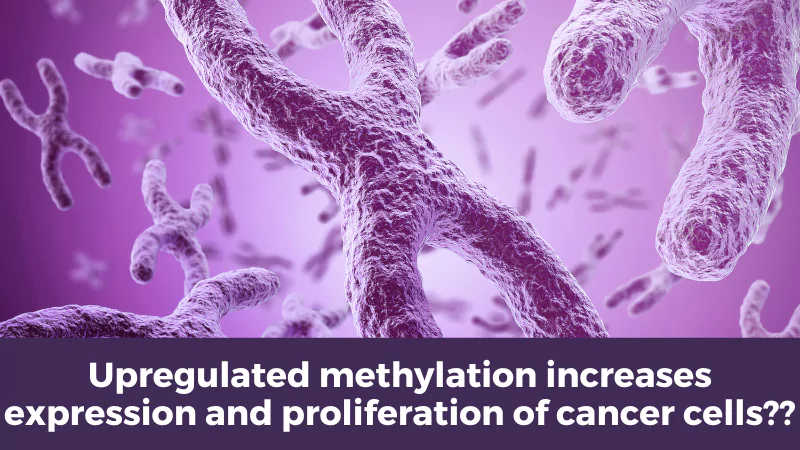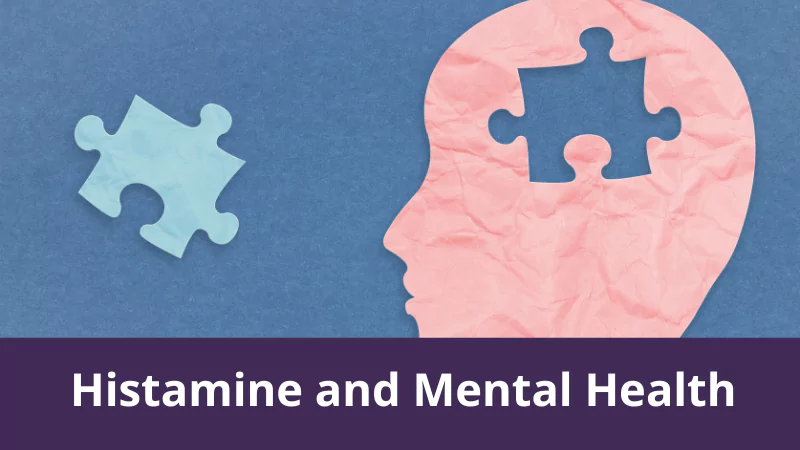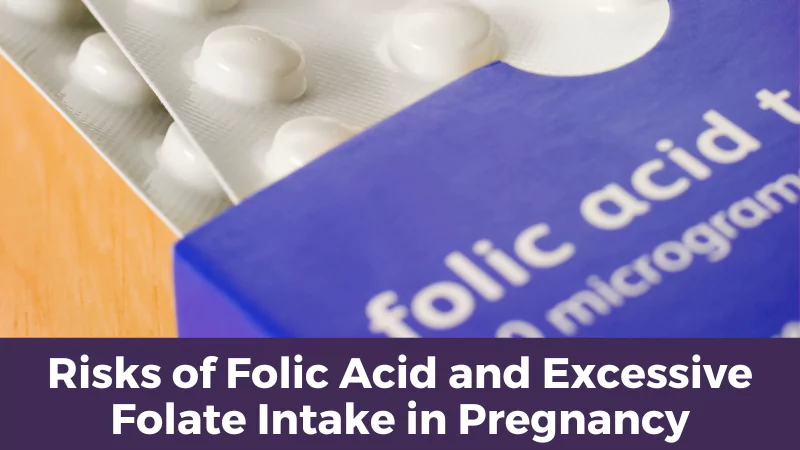There is no question that the future of medicine will be in analysing a person’s genetics, with a detailed family history and addressing the genetic inefficiencies of that person. As naturopaths, we will be required to understand more of the mechanisms that drive a person to ill health. Yes, the environment is key, however, there will be times that we need to use epigenetics to modify the action of a gene.
Methylation is complicated as many of you know. The relation between folate, DNA methylation and cancer has been a hot topic in the past decade. DNA methylation is linked definitely to tumorigenesis, a process of in the development of malignant cells and it is a complex process. In a healthy body, genome-wide methylation is one of the important characters of normal cells, but not CpG (cytosine-phosphateguanine) islands because they are normally unmethylated.[i],[ii] Carcinogens may cause cancer by triggering hypomethylation meaning lower methylation level of the entire genome; or triggering hypermethylation of the CpG island promoters meaning higher methylation level. In the case of tumorigenesis, both hypomethylation and hypermethylation play roles in cancer. Here the hypomethylation of the entire genome is essential for the occurrence of cancer because it causes genome instability such as chromosomal rearrangement and retrotransposon activation. On the other hand, the CpG island hypermethylation can also induce cancer through shutting down the tumour suppressive genes. As such, simply mentioning that over methylation of DNA causes cancer is inaccurate.
An article titled “Upregulated methylation increases expression and proliferation of cancer cells” by Daniel Baden of BioMedica claims that “a common biochemical presentation is that large groups of cells are in hypo-methylation mode whilst cancer cells are simultaneously in hypermethylation”, which gives insufficient and incorrect information about the relationship between methylation and cancer.[iii] As mentioned above, normal cells are under genome-wide methylation but not “hypo-methylation” . Furthermore, in tumorigenesis of cancer cells, the genome-wide hypo-methylation and / or CpG island hyper-methylation may induce cancer, but not overall “hyper-methylation” as claimed by Baden. Similar claims by the same author were published previously titled “are MTHFR Polymorphisms, Methylation and Folates driving you crazy”.[iv]
The complex of methylation and its roles in tumorigenesis has an impact on the relationship between folate with its analogues and cancer. For example, folate has an impact on DNA methylation, but anti-folate drugs such as methotrexate (MTX) and 5-fluorouracil (5-FU) are used to fight against cancer because it suppresses the growth of cancer cells through inhibiting their DNA synthesis.[v],[vi] In addition, folinic acid as one of the analogues of folate can be used in conjunction with MTX to stop the folate deficiency and resulting neurotoxicity caused by MTX, because even neurotoxicity from high dose of MTX can be rescued by a relatively high dose of folinic acid to protect the brain without reducing the anti-cancer therapeutic effect from MTX.[vii],[viii]
Furthermore, in the article by Baden, it claims that “folinic acid is also synthetic” iii which is misleading because folinic acid, unlike folic acid, is a naturally occurring folate. Due to its natural occurring features, folinic acid can be used to regenerate low folate and can assist normal cell growth in low folate supply;[ix] and the treatment of schizophrenia associated with low folate caused by folate receptor autoantibodies.[x] The multiple misunderstanding of these significant concepts and biological processes may mislead readers .
Most importantly, the article by Baden claims that “the potential for methylfolate to be such a potent methylator, that it increases the risk of cancer initiation or growth” and that “folic acid is safer in cancer support therapies” are simply not correct. Both of these statements are the opposite of the current understanding of the roles of methyl folate and folic acid in the literature about cancer. The fact is, large clinical trials confirm that it is folic acid but not folate causing cancer. For example, a large scale human clinical trial with hundreds of cancer patients in the U. S. and Canada found that 1 milligram of folic acid per day can increase the chances of recurrence in colorectal cancer; and another large scale human clinical trial in Norway confirms that the risks of colorectal cancer and non-colorectal cancer are both higher in heart disease patients treated with 0.8 milligram of folic acid and 0.4 milligram of vitamin B12 per day.[xi],[xii],[xiii] On the contrary, methyl folate or 5-methyltetrahydrofolate (5-MTHF) is considered safer compared to folic acid, because 5-MTHF is a natural form of folate and induces higher folate concentration within a shorter time in the blood stream.[xiv],[xv],[xvi] Furthermore, the unmetabolised folic acid levels in the blood are much lower when treated with 5-MTHF compared to folic acid, which is greatly safer and beneficial since unmetabolised folic acid in the blood may increase the risks of cancer and other health issues.[xvii],[xviii],[xix]
Health professionals need to bear in mind that over doses of any nutritional supplement is not beneficial for patients. Most of the research however, when looking at high folate levels has been done with folic acid, not L-5MTHF. A recent study assessed folate levels and found that high folate levels (folic acid derived) who had four times higher folate levels in their blood than the adequate amount of folate in mothers after giving birth doubled the risk of autism in their children.[xx] Over-dose of folic acid may cause higher level of unmetablised folic acid in the blood which may block the arteries, reduce immune functions, and reduce efficiency of medications.[xxi],[xxii] Moreover, as mentioned above, higher levels of unmetablised folic acid may increase the risk of cancer.
It has been well known that adequate folate intake is important in the protection of neural tube defects in offspring; but the adequate or over-dose effects of folate on autism spectrum disorder was uncertain until recently. A report of the Boston Birth Cohort collecting data from mother-offspring pairs over a time period of fifteen years shows that maternal multivitamin supplementation is associated with lower risk of autism in offspring.[xxiii]
The safety of folic acid must come into question when we are starting to see research comparing folic with other folate analogues like folinic and L-5MTHF XXIV . The reason that folic acid hasn’t been challenged so far is that its been the only folate used in clinical trials, however there is enough research to suggest that high doses of folic acid (over 300mcg ) have the potential to cause harm XV11,Xv111, xxv and when we consider mandatory fortification of foods then we should be considering this in our calculations. Just because its always been used, it doesn’t mean that’s what we should be using going forward when other, more active forms are available to us.
It’s true that some people may react adversely to methylfolate, just like any nutrient, however these reactions give us the biochemical clues as to what pathway may need addressing. Some people may not need methyl at all but do much better with folinic. So again it’s back to the practitioner to understand and caution patients of the potential for side effects. The upside however, for many patients is far beyond all expectation. So yes we should be accountable and yes we should understand why we are giving a certain nutrient.
In summary, it is critically important to fully understand the different effects of folic acid, folinic acid and folate on DNA methylation in the body. The impact of adequate or over-dose of each of these folate analogues can be completely different with predictable or unpredictable health consequences. So the more we understand the folate pathway, review the emerging research the more insight we will obtain.
Click here to download a PDF of this article including references.
Bibliography
[i] Bhattacharjee D, Shenoy S, Bairy KL. DNA Methylation and Chromatin Remodeling: The Blueprint of Cancer Epigenetics. Scientifica (Cairo). 2016; 2016:6072357. PMID: 27119045
[ii] Paska AV, Hudler P. Aberrant methylation patterns in cancer: a clinical view. Biochem Med (Zagreb). 2015 Jun 5; 25(2): 161-76. PMID: 26110029
[iii] Baden, D. (2016). Upregulated methylation increases expression and proliferation of cancer cells. Retrieved from https://gallery.mailchimp.com/707e35e96308222437bd06f0f/files/Upregulated_methylation_increases_expression_and_proliferation_of_cancer_cells_web.pdf
[iv] Baden, D. (2015). Are MTHFR Polymorphisms, Methylation and Folates driving you crazy? Retrieved from https://gallery.mailchimp.com/707e35e96308222437bd06f0f/files/Are_MTHFR_Polymorphisms_Methylation_and_Folates_driving_you_crazy.pdf
[v] Hubner RA, Houlston RS. Folate and colorectal cancer prevention. Br J Cancer. 2009 Jan 27; 100(2): 233-9. PMID: 19088716
[vi] Audet-Walsh É, Papadopoli DJ, Gravel SP, Yee T, Bridon G, Caron M, Bourque G, Giguère V, St-Pierre J. The PGC-1α/ERRα Axis Represses One-Carbon Metabolism and Promotes Sensitivity to Anti-folate Therapy in Breast Cancer. Cell Rep. 2016 Feb 2; 14(4): 920-31. PMID: 26804918
[vii] Cohen IJ. Defining the appropriate dosage of folinic acid after high-dose methotrexate for childhood acute lymphatic leukemia that will prevent neurotoxicity without rescuing malignant cells in the central nervous system. J Pediatr Hematol Oncol. 2004 Mar; 26(3): 156-63. PMID: 15125607
[viii] Cohen IJ. Challenging the clinical relevance of folinic acid over rescue after high dose methotrexate (HDMTX). Med Hypotheses. 2013 Nov; 81(5): 942-7. PMID: 24035689
[ix] Zhu WY, Melera PW. Metallothionein is overexpressed by hamster fibroblasts selected for growth in 15 pm folinic acid and provides a growth advantage in low folate. Cancer Res. 1999 Sep 1; 59(17): 4194-9. PMID: 10485453
[x] Ramaekers VT, Thöny B, Sequeira JM, Ansseau M, Philippe P, Boemer F, Bours V, Quadros EV. Folinic acid treatment for schizophrenia associated with folate receptor autoantibodies. Mol Genet Metab. 2014 Dec; 113(4): 307-14. PMID: 25456743
[xi] Kim YI. Folic acid supplementation and cancer risk: point. Cancer Epidemiol Biomarkers Prev. 2008 Sep; 17(9): 2220-5. PMID: 18768486
[xii] Ebbing M, Bønaa KH, Nygård O, Arnesen E, Ueland PM, Nordrehaug JE, Rasmussen K, Njølstad I, Refsum H, Nilsen DW, Tverdal A, Meyer K, Vollset SE. Cancer incidence and mortality after treatment with folic acid and vitamin B12. JAMA. 2009 Nov 18; 302(19): 2119-26. PMID: 19920236
[xiii] Jennings BA, Willis G. How folate metabolism affects colorectal cancer development and treatment; a story of heterogeneity and pleiotropy. Cancer Lett. 2015 Jan 28; 356(2 Pt A): 224-30. PMID: 24614284
[xiv] Venn BJ, Green TJ, Moser R, Mann JI. Comparison of the effect of low-dose supplementation with L-5-methyltetrahydrofolate or folic acid on plasma homocysteine: a randomized placebo-controlled study. Am J Clin Nutr. 2003 Mar; 77(3): 658-62. PMID: 12600857
[xv] Lamers Y, Prinz-Langenohl R, Moser R, Pietrzik K. Supplementation with [6S]-5-methyltetrahydrofolate or folic acid equally reduces plasma total homocysteine concentrations in healthy women. Am J Clin Nutr. 2004 Mar; 79(3): 473-8. PMID: 14985224
[xvi] Prinz-Langenohl R, Brämswig S, Tobolski O, Smulders YM, Smith DE, Finglas PM, Pietrzik K. [6S]-5-methyltetrahydrofolate increases plasma folate more effectively than folic acid in women with the homozygous or wild-type 677C–>T polymorphism of methylenetetrahydrofolate reductase. Br J Pharmacol. 2009 Dec; 158(8): 2014-21. PMCID: PMC2807663
[xvii] Bailey RL, Mills JL, Yetley EA, Gahche JJ, Pfeiffer CM, Dwyer JT, Dodd KW, Sempos CT, Betz JM, Picciano MF. Unmetabolized serum folic acid and its relation to folic acid intake from diet and supplements in a nationally representative sample of adults aged > or =60 y in the United States. Am J Clin Nutr. 2010 Aug; 92(2): 383-9. PMC2904036
[xviii] Choi JH, Yates Z, Veysey M, Heo YR, Lucock M. Contemporary issues surrounding folic Acid fortification initiatives. Prev Nutr Food Sci. 2014 Dec; 19(4): 247-60. PMCID: PMC4287316
[xix] Sawaengsri H, Wang J, Reginaldo C, Steluti J, Wu D, Meydani SN, Selhub J, Paul L. High folic acid intake reduces natural killer cell cytotoxicity in aged mice. J Nutr Biochem. 2016 Apr; 30: 102-7. PMID: 27012626
[xx] Fallin, D. (2016). Too Much Folate in Pregnant Women Increases Risk for Autism, Study Suggests. Johns Hopkins Bloomberg School of Public Health. Retrieved from http://www.jhsph.edu/news/news-releases/2016/too-much-folate-in-pregnant-women-increases-risk-for-autism-study-suggests.html
[xxi] Sweeney MR, McPartlin J, Scott J. Folic acid fortification and public health: report on threshold doses above which unmetabolised folic acid appear in serum. BMC Public Health. 2007 Mar 22; 7: 41. PMID: 17378936
[xxii] Sweeney MR, Staines A, Daly L, Traynor A, Daly S, Bailey SW, Alverson PB, Ayling JE, Scott JM. Persistent circulating unmetabolised folic acid in a setting of liberal voluntary folic acid fortification. Implications for further mandatory fortification? BMC Public Health. 2009 Aug 18; 9: 295. PMID: 19689788
[xxiii] Raghavan R, Fallin MD, Wang X. Maternal plasma folate, vitamin B12 levels and multivitamin supplementation during pregnancy and risk of Autism Spectrum Disorder in the Boston Birth Cohort. The FASEB Journal. 2016 Apr 1; 30(1 Supplement): 151-6.
XX1V Aarabi, Mahoud et al. High dose folic acid supplementation alters the human sperm methylome and is influenced by the MTHFR C677T polymorphism. Human Molecular Genetics, 2015,1-13
XXV Sweeney M. Persistent circulating unmetabolised folic acid in a setting of liberal voluntary folic acid fortification. Implications for further mandatory fortification. BMC Public Health 2009 Aug 18. 9:295









